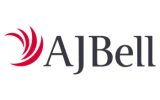Guide to SIPPs
What are they?
SIPP stands for Self Invested Personal Pension. It is a personal pension plan but has the added advantage that you, as the investor, have complete control over the investment strategy and investments contained in the pension plan.
How do they work?
Personal pensions are usually provided by insurance companies and they often limit your choice of investment to a number of investment funds, often managed by the same company.
A SIPP should be viewed as a tax efficient wrapper into which you can invest almost any type of financial asset. Although a SIPP may be provided by an insurance company, it can also be provided by specialist SIPP administrators. .
Pension Advice
A SIPP provider will establish the SIPP wrapper which will receive all the tax advantages that are enjoyed by a standard personal pension. Once the SIPP has been set up, you invest your lump sum or begin investing regular contributions which will initially be placed in a cash account.
The list of permitted SIPP investments is extensive and includes:
- UK and international company shares
- UK and international government and company debt (gilts and corporate bonds)
- Collective investment schemes such as unit trusts, pension funds, investment trusts
- Commercial property
- Deposit funds and currency
- Commodities
- Futures and options
- Warrants
- Derivatives
How much can I invest?
You will receive tax relief at your highest rate on any contributions that you make within the annual allowance. Even if you are a non-taxpayer the government will pay the basic rate of tax on top of contributions up to £3,600 a year.
Is a SIPP suitable for me?
If you are unsure about whether to invest in a SIPP, further advice can be sought from an independent financial adviser. Generally, SIPPs are suitable for investors who want to be in control of their pension investments, have a wide choice of investment options, require flexibility over their investment strategy, and are comfortable making their own investment decisions.
There will be some fees involved with a SIPP, with charges varying between providers. There may also be initital and annual management charges for specific investments made.
There will also be a charge if you receive financial advice about SIPP investments. However, many SIPPs are primairly non-advised services so there is no financial adviser costs.
If you have an existing pension plan this may be elligible for pension transfer but this will depend on the type of existing schemes you have.
How do I get a pension income from a SIPP when I retire?
Since 2015 there has been greater flexibility on how you can draw benefits from a SIPP plan. Options include:
- Leaving your SIPP intact until you draw it
- Using some or all of your pension fund to buy an annuity to provide a fixed income for life
- Take up to 25% of your pension fund tax free as a regular income
- Take all of your pension pot in one go with 25% available tax free with teh balance taxed at your tax rate at the time you draw down
- You can mix and match the above options
If you are unsure of your options it makes good sense to get independent financial advice from a pensions specialist
Anything else that I need to know?
The charges associated with a SIPP and the types of investments available will vary between providers so you should look carefully at what a SIPP offers before making a decision to open a plan.
For example, some SIPPs may solely provide access to mutual funds (collective investment schemes) provided by fund managers, while other SIPPs may allow access to low cost tracker or passive funds, Exchange Traded Funds (ETFs) and structured investment products.
For more information on SIPPS, Hargreaves Lansdown have published a useful FREE guide to SIPPS which you can access here.
Compare UK Pension Services
Compare pension services for self invested pensions (SIPPs) where you can pull your existing pension plans into one place.
Lost track of old pension plans? Service for tracking down plans from previous employments.
Annuity service if you are looking to buy a guaranteed income from your pension pot.
Looking To Retire At Age 55? FREE Guide

FREE Guide – Retiring Early!
8 tips for an earlier, wealthier retirement
Transforming that dream into a reality doesn’t come cheap, how could you afford it? Once you have paid off debts, like it or not, the answer is likely to depend on your pension.
Straightforward guide provides eight tips that could help you to retire earlier than you thought, including:
- The simple formula for how much you should consider investing each month
- How to boost existing pensions
- Understanding the options available at retirement (including the new rules)
This guide is not personal advice. Please remember tax rules can change and the value of the tax benefits will depend on your circumstances. The value of investments can fall as well as rise so you could get back less than you invest. Pensions cannot usually be withdrawn until age 55 (increasing to 57 in 2028).
Self Invested Pension
Take Control of your pension!
A self-invested personal pension (SIPP) is different to a traditional pension. Instead of limiting your investment options, a SIPP opens the doors, giving you more choice in how you invest your money. Like other pensions, the government will still give you up to 46% tax relief on the amount you pay in. Once your money is in a SIPP, you won’t have to pay tax on any gains or income your investments make.- Low cost award winning pension – Fixed fee plan keeps costs down over long term
- Investment choice – Choose from more than 40,000 investments
- Ready made funds and investment ideas – Making it easy to select investments
- Expertise – Research, ideas, and updates to help you with your investment decisions
Compare Self Invested Pension Providers

A low cost award-winning SIPP that gives you a choice of over 40,000 investments; Selected funds; Ready made portfolios.
Sipp fee: £5.99 pm – assets up to £50,000, £12.99 pm – assets over £50,000

Offering commission-free DIY investing from a choice of 700 ETF’s, or low-cost professionally managed income or growth portfolios built for you
Sipp fee: 0.15% for your InvestEngine SIPP, capped at £200 per year, plus the costs of your investments — commission‑free for our DIY portfolios, or add a Managed portfolio for 0.25% a year

Thousands of funds to choose from; Select 50 – Browse a list of expert picks. Pathfinder – Risk profiled fund options. Investment Finder – Search 1000s of investment ideas.
Less than £25,000: 0.35% if you have a regular savings plan or £90 (£7.50 a month) if you don’t
£25,000 or more but less than £250,000: 0.35%
£250,000 or more but less than £1 million: 0.20% – and you will automatically qualify for Fidelity’s Wealth Management Service benefits
£1 million+: 0.20% a year for the first £1 million and no service fee for investments over £1 million
Pension Finder & Transfer Service
There are no tables for this criteria

10 COSTLY PENSION MISTAKES
10 Costly Pension Mistakes Millions of Britons Make
- How to discover if your pension will be enough
- What ‘free money’ most private sector workers miss out on
- How to get a share of £41 billion from the taxman
- How to benefit from the pension freedoms and avoid the traps






